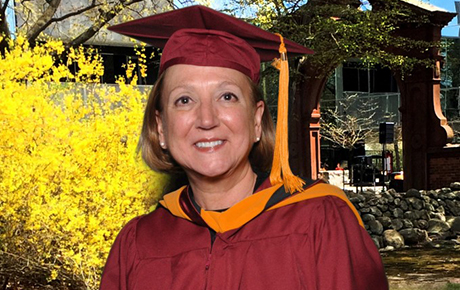- About Ramapo
- Academics
- Admissions & Aid
- Student Life
- Athletics
- Alumni
- Arts & Community
- Quick Links
- Apply
- Visit
- Give
MS in Contemporary Instructional Design
At this time, Ramapo College is no longer accepting applications to the Master of Science in Contemporary Instructional Design (MCID) program. Further updates regarding this program will be posted as they become available. Please research our other Education Graduate Programs in Educational Leadership and Special Education and more!
The Ramapo College’s Master of Science in Contemporary Instructional Design (MCID) can dramatically transform the roles of the teacher and student by bringing the world into the classroom. Especially now – where virtual learning is the norm, advances in technology can accommodate diverse learning styles and performance levels, liberate teachers and students from the “one size fits all” model of education, enable students from dissimilar backgrounds to experience a common sense of accomplishment, provide bridges from classroom teacher to district tech coordinators, and foster lifelong learning. No entrance exams are required.
- Our courses are hybrid in design, meeting in class only twice per month. This blending provides the convenience of working at home or your own personal research space, with the advantages of face-to-face interaction with our professors and peers.
- Off-campus cohorts can be developed with 8 or more students. Such cohorts will be taught at the school where the cohort leaders teach.
- All assignments and projects will be customized to the student’s own personal classroom and curriculum needs.
- Utilize in-class assessed educational technology strategies as a highly effective classroom management tool!
- There is an Optional ONLINE format for all elective classes for those students whose personal demands preclude them from participating in a traditional on-campus commitment.
- The program requires four core courses, a two-credit web-based learning project (Practicum), and four electives for a total of 34 credits.
Program Details
Credits: 34
Format: hybrid
Full-time/Part Time Option: PT only
Estimated cost (per credit / total):
Per credit = $851.82
34 credits total = $28,961.88
(cost details)
Duration: 2 years PT
Start Term: Fall, Spring, Summer
LEARN MORE
Loading...
Director’s Message
Thank you for your interest in the Master of Science in Contemporary Instructional Design Program at Ramapo College. This program aims to provide students with the tools, knowledge, and skills to thrive in an ever changing classroom and world. We accomplish this by offering coursework that blends pedagogy, curriculum, and the latest in technology tools with a specific focus on how best to incorporate them into our teaching. We want teachers to leave us not only prepared for the demands of the future, but serve as models for what high quality teaching looks like.
Dr. Julie Good, Teacher Education Graduate Program Director
Schedule an Advisor Session with the MCID Program Director
Why is the Ramapo MCID right for you?
- Competitive state college tuition
- Eight courses complete the degree easily in two years
- Assignments are individually tailored to your own personal curriculum needs
- Hybrid Course Design: Courses can be completed online, blending the convenience of working at home or your own personal research environment with the advantages of face-to-face interaction with our professors and peers in the classroom
- Effective Classroom Management Tools: Utilize in-class assessed Contemporary Instructional Design strategies

Ramapo Spotlight - Christine Green
"The Masters in Educational Technology program at Ramapo prepared me to produce quality websites containing robust... READ MORE >
Copyright ©2025 Ramapo College Of New Jersey. Statements And Policies. Contact Webmaster.
